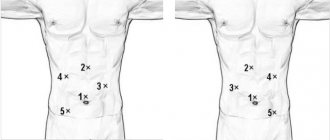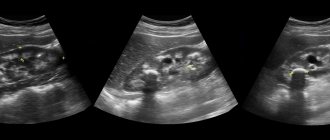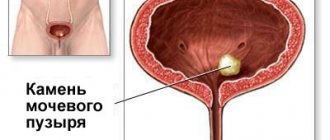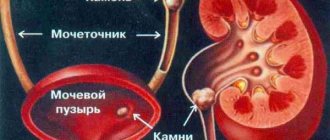Kidneys are considered an important organ for humans. They are designed to filter liquids. Thanks to them, all harmful substances that can accumulate in soft tissues are removed from the body.
The kidneys are responsible for normalizing blood pressure and fluid balance. It is possible to live without these organs, but for this the patient will need to undergo hemodialysis, which will artificially purify the blood. Let's consider whether conscripts are accepted into the army if they do not have a kidney.
Categories of suitability for military conscription
Kidney disease is not grounds for absolute exemption from military service. Doctors distinguish categories of suitability for the army based on the condition of such patients.
Conscripts are always examined especially carefully if they have diseased kidneys, and the fitness categories for such soldiers allow them to choose places of service for them. If a person has one kidney functioning normally, he will be drafted into the army.
Only in cases of dysfunction of both kidneys and in a state of renal failure is a conscript considered unfit.
The category of suitability for military service depends on the degree of renal dysfunction:
- minor;
- moderate;
- significant;
- chronic.
If the disease is at an early stage and has not affected the second kidney, then the person joins the army immediately. In case of significant chronic dysfunctions, the conscript is given a temporary reprieve and sent for treatment. To obtain such a conclusion from the medical commission, it is required to submit as many certificates as possible from the attending physicians.
If there are congenital anomalies, you should bring with you the results of the conclusions of doctors observing a person with such a diagnosis. The more medical documents there are indicating the possibility of a sharp exacerbation, the more likely it is that the conscript will receive a deferment from the army and will be sent for treatment.
When will a conscript be released?
A conscript receives exemption under category “D” (not fit for the army) if he has a confirmed diagnosis related to:
- The absence of one kidney, which was previously removed during the treatment of pathologies. In this case, the remaining second kidney demonstrates functional impairment, regardless of the degree of its manifestation.
- The absence of a congenital kidney or the lack of its functionality. At the same time, the functionality of the second organ is also impaired.
Young people with diagnosed anomalies or acquired pathologies have the right not to go to serve:
- one of the kidneys does not function or is completely absent due to removal, if deviations in the functionality of the second kidney are not diagnosed;
- the kidney is absent due to congenital reasons or it is nonfunctional, although the second organ works normally.
In the above cases, the conscript receives category “B”, is recognized as partially fit for the army and is sent to the reserve.
How does the military medical commission treat conscripts with kidney prolapse?
Anomalies in the structure of the body are one of the pathologies with which a conscript can be released from service and enlisted in the reserves. In some cases, a young man with such problems is given a deferment.
Anomalies in the structure of the body also include nephroptosis or kidney prolapse. Service in the ranks of the Armed Forces is incompatible with such a pathology and can provoke the development of serious complications.
Given the complexity of the disease, the military medical commission is selective about conscripts with nephroptosis.
The conclusion of the draft commission is influenced by the specifics of the clinical picture. A conscript may be assigned fitness category B, C or D, depending on what stage of development the anomaly is at and whether there are functional impairments.
Age limit
Up to what age is one drafted into the army and when can the first summons arrive? It is allowed to conscript young people to serve in the army immediately after turning 18. However, most guys go to serve much later. This is due to the fact that they are given the opportunity to graduate from an educational institution. If, at the time of turning 18, a person is studying at a college or higher education institution, then he retains the right to study; he can be called up only after completing his studies.
If a young man immediately enters college after college (before October 1), then he is again given a deferment for the entire period of study.
So at what age are you drafted into the army? The cut-off age is 27 years. However, you should understand that they can pick you up even a month before your birthday. In this case, the service life is the same as for all – 1 year.
Therefore, it is important to know the conscription periods:
- spring - from April 1 to July 15;
- autumn - from October 1 to December 31.
Other deadlines are provided for certain categories of persons. For example, persons who live in the Far North are conscripted from May 1 to July 15 and from November 1 to December 31.
What kind of nephroptosis does one take into the army?
When assigning a fitness category, the decisive factors are the presence of functional disorders and the stage of the anomaly in the structure of the body. At the first stage (the lower pole of the kidney is lowered by 2 vertebrae), the kidney is lowered only in a vertical position of the body.
When the patient lies down, the organ returns to its original position. The course of the disease is mild, the quality of life is not reduced, the patient can only complain of periodic mild pain in the lower back.
Often people ignore pain and do not see a doctor.
At the second stage (the lower pole of the kidney is lowered by 3 vertebrae), the clinical picture is more pronounced. The kidney can be felt by palpation. Painful sensations appear even during slight physical activity, but disappear after rest. At this stage, the anomaly leads to disruption of the blood supply and ureter.
At the third and final stage of the pathology (the lower pole of the kidney is lowered by more than 3 vertebrae), the kidney is easily palpable when the patient is in an upright position. The abnormal location of the organ leads to impaired renal function, decreased immunity and the occurrence of infectious diseases.
If the anomaly is not detected by severe symptoms, and the excretory function is not affected, the military medical commission gives the conscript category B. This clinical picture is typical for first-degree nephroptosis.
With second-degree nephroptosis, it is impossible to unambiguously determine the category of suitability. According to Article 72 of the Schedule of Diseases, young people who have been diagnosed with unilateral or bilateral nephroptosis of the 1st degree, as well as persons with a right-sided or left-sided anomaly without the presence of changes in urine and failure of excretory function, are subject to conscription.
In this case, the fitness category B-3 is assigned. Recruits sent to military service with restrictions due to nephroptosis perform their duty in certain types of troops, in particular in the ranks of the internal units of the Ministry of Internal Affairs, in guard units, as well as as drivers and crew members of armored personnel carriers, infantry fighting vehicles and missile launchers parts.
Alternative service
It is no secret that in most countries of the world the obligation to perform military service is not assigned to citizens, and therefore the question of how to avoid the army does not arise. But in our country we also have such a thing as alternative service. First of all, this applies to those persons who, due to their beliefs or other reasons, cannot take up arms.
Alternative civilian service is fundamentally different from military service, including military service. In fact, this is the implementation of labor activity for the benefit of the country for a certain period of time.
According to the requirements of Federal Law-113, the category of persons who can undergo alternative service includes:
- if military service goes against the moral principles of a citizen;
- indigenous population of the country, leading a traditional economy.
If everything is clear with the second category - there are very few such people in our country, then with the first, not everything is so clear. It is very difficult to interpret the terms “faith” and “beliefs”. Naturally, if a young man suddenly began to ardently believe in God a month before conscription, then such an argument will not provide an opportunity to undergo alternative service.
You should also know that the term of alternative service is longer than conscription service. In the latter case it is 12 months, in the case of AGS - from 18 to 21 months. In 98% of cases, young people are given the opportunity to undergo ACS in the city of permanent residence. While working, the citizen will even receive a salary, he will be given vacation, weekends and paid sick leave.
To undergo alternative service, it is recommended to submit an application to the military registration and enlistment office at least 6 months, and preferably 12 months before conscription. The document is drawn up in free form, in which you will have to disclose your “beliefs” as much as possible, and if there is documentary evidence, then they must be attached to the application.
What is nephroptosis
During the process of prolapse, the kidney hangs on the only support - the artery, which is greatly stretched. As a result of stretching of the artery, the blood supply to the kidney is reduced and disrupted.
Expert opinion
Kuzmin Maxim Petrovich
Lawyer with 8 years of experience. Specializes in criminal law. Recognized legal expert.
To get the required amount of blood, the kidney begins to work hard, which leads to an increase in blood pressure. Kidney prolapse causes difficulty urinating.
Bacteria that are not washed away begin to multiply, which leads to the development of pyelonephritis.
How military commissariats delay the process of releasing a conscript from service
Military commissariats may delay the process of assigning a fitness category by sending the conscript for additional examinations. As a result, the patient is given a deferment.
There are cases when a conscript, after a second medical examination, is again sent for examination in order to confirm the established diagnosis, despite the fact that the person responsible for the examination has already confirmed the presence of a disease, which, according to the Schedule of Diseases, implies a non-conscription category. In some cases, even after additional research, a deferment is granted, although the law does not provide for a second deferment during the current conscription.
In this case, the citizen must receive a military ID for health reasons and be exempt from military service.
Under such circumstances, a young man can turn to military lawyers and stand up for his rights, strengthened by law.
Federal Law “On Military Duty and Military Service” Article 23 establishes the grounds and circumstances under which citizens are subject to exemption from conscription for military service. Citizens who have a diagnosis, which, according to a special document - the Schedule of Diseases, allows them to receive a non-conscription category, are exempt from service.
Persons who:
- have a scientific degree;
- are serving a sentence for a crime;
- are sons or brothers of citizens who died in the performance of military duty;
- completed military service or ACS.
They can also be exempted from military service for family reasons. To avoid being called up for service, a young man under the age of 27 must submit to the military registration and enlistment office documents confirming the right to a deferment: medical certificates, extracts from the registry office, etc.
Kidney stones and military service: do they take it or not?
Urolithiasis (UCD) is a metabolic disease in which stones or, in scientific terms, calculi, are formed in the organs of the excretory system. It can be triggered by various factors: past infections, disruption of the endocrine system, hereditary predisposition. This disease belongs to a large group of dysmetabolic nephropathies.
Urolithiasis is one of the most common diseases of the excretory system
Symptoms of the disease are difficulty urinating, nausea, elevated body temperature, and bloating. Another manifestation of urolithiasis is renal colic - an acute pain syndrome that occurs when the surfaces of the excretory tract are damaged by a passing stone. Excess blood (hematuria) and white blood cells (leukocyturia) are usually found in the urine of patients with urolithiasis.
To treat this disease, conservative and surgical methods are used; instrumental crushing of stones and their removal using a laser (lithotripsy) is considered very effective.
Do they take you into the army with kidney stones? The answer depends on many factors: the type of stones and the characteristics of their formation, concomitant pathologies and the presence of disorders of excretory functions. This disease is covered under Article 72 of the Republic of Belarus.
Theoretically, the presence of medium-sized stones is a sufficient reason for exemption from conscription - because this disease is fraught with serious exacerbations with acute pain. In practice, a young man can be drafted into the army even with large stones and significant functional impairment. It is common practice to send them to the army with sand or small stones. Young people who, by the beginning of the conscription cycle, had stones removed as a result of surgery or passed on their own, can be recruited.
According to the Schedule of Diseases, a person liable for military service can count on “non-conscription” category “B” in the following cases:
- If renal colic occurs three or more times in one year, there is functional impairment of the kidneys and the passage of stones;
- In the presence of single stones with a diameter of more than 5 mm, regardless of functional impairment;
- If the stone size is less than 5 mm, there are attacks of pain and blood in the urine (hematuria).
Often a young man with ICD receives a deferment until the next draft. It is believed that during this period, kidney stones can pass out on their own. It should be understood that it is quite difficult to confirm the presence of renal colic - for this you need to have proven calls to the ambulance service.
Urolithiasis is often accompanied by other diseases of the excretory system: pyelonephritis, nephrogenic arterial hypertension, renal failure, hydronephrosis. In such cases, the conscript usually receives category “D” and complete exemption from service.
Non-conscription categories
With nephroptosis, a conscript can count on fitness categories B, C and D.
Categories B, C and D can be assigned for first degree anomalies. In case of nephroptosis of the second degree, if one kidney is prolapsed and there is secondary pyelonephritis, as well as if both kidneys are prolapsed and changes in clinical manifestations with impaired excretory function are recorded, category B is assigned.
At stage 3 of the disease, serving in the army is prohibited. A conscript with this diagnosis is assigned category D, since in this phase of the disease both kidneys are prolapsed, there is secondary pyelonephritis or vasorenal hypertension, and the pain syndrome is permanent.
Nephroptosis is a disease, the detection and confirmation of which allows one to receive a non-conscription category and exemption from the army.
Finally
Persons who have an academic degree, have a criminal record, have become an adoptive parent, or are under investigation or inquiry are not subject to conscription. A deferment is given not only for medical reasons, but also if the young man takes care of close relatives or is raising a child on his own. Guys who have a pregnant wife, but not earlier than the 26th week, fall into the same category.
The main thing is to always remember: in order to receive category “B” or a deferment, you must first prepare all the documents before the start of the conscription period. On the other hand, 12 months in the army will allow you to strengthen your physical fitness and become stronger mentally, to become a real man and defender.
Reviews
Conscripts with resection of part of a kidney are not accepted into the army if there are serious problems with the excretory system. Part of the kidney is removed after an organ injury or as a therapeutic procedure for a serious illness.
Resection of only part of the kidney allows preserving the cleansing and excretory functions. The load on the second healthy kidney will be reduced after the recovery period.
But this is not always possible.
Pyelonephritis and conscription into the armed forces
Pyelonephritis is an inflammatory infectious disease that affects the tubular system of the kidneys. It can occur in acute and chronic form. In addition, pyelonephritis is distinguished between primary and secondary, obstructive and non-obstructive, bilateral and unilateral.
Healthy kidney and organ affected by pyelonephritis
The acute phase of the disease is accompanied by high fever, headache, aching joints and muscles, nausea and vomiting. If the disease is not cured, it becomes chronic, with phases of exacerbation and remission.
Whether someone with pyelonephritis will be accepted into the army depends on the course of the disease and its severity. In the Schedule of Diseases, pyelonephritis occurs both as an independent pathology and as an “additional” disease. It is considered as the main diagnosis in Article 72 of the Republic of Belarus.
Exemption from service can be obtained if the illness leads to serious impairment of the functions of the excretory system, for example, renal failure. The “non-conscription” category is assigned after an additional examination, which necessarily includes an ultrasound and x-ray of the kidneys, a general blood and urine test. They are not accepted into the army with chronic pyelonephritis if the conscript has leukocyturia and bacteriuria six months after the acute attack. The likelihood of receiving category “D” increases if the disease affects both kidneys, there are disturbances in protein metabolism, and pathologies of the renal vessels are detected.
Medical examination
At conscription age, young people undergo a medical examination at the military registration and enlistment office. She assesses the health status of future soldiers.
Some serious illnesses prevent you from serving in the country's armed forces. Many disorders in the functioning of important systems of the body or internal organs give the right to exemption from conscription or a deferment for treatment and restoration of health.
The list of pathologies and health conditions for which one can apply for exemption and deferment is published in the Schedule of Diseases. This special list also explains which fitness category the conscript will receive in each case. The disease schedule is constantly supplemented, adjusted, and published in a new version.
Didn't understand the article and need help?
After removal of a kidney, serious rehabilitation is required, additional procedures must be carried out, and it is necessary to limit physical activity, not lift weights exceeding 5 kg, observe a drinking regime and a special diet. At the end of the recovery period, it will be clear whether the kidney remains functional or not.
Double kidney and conscription into the armed forces
Another congenital anomaly associated with the urinary system is the duplication of the kidney - it forms an additional ureter and pelvis, the organ becomes twice the size of the normal one. A distinction is made between complete and incomplete doubling. The cause of this pathology is intrauterine development disorders. It is often asymptomatic, but can cause the development of dangerous kidney diseases. In some cases, pathology causes obstruction of urine outflow or reflux, which leads to hydronephrosis.
Kidney duplication stages
When the kidneys double, conscripts are released from military service and assigned category “B”. However, the Schedule of Diseases specifies one important condition: to receive a “white” ticket, the pathology must be accompanied by moderate disturbances in the functioning of the excretory system.
Naturally, the conscript must confirm his diagnosis at the military registration and enlistment office. To do this, he should prepare a set of medical documents, including a general analysis of urine and blood, ultrasound data, computed tomography, angiography, nephroscintigraphy and angiography.
If you have any questions, leave them in the comments below the article. We or our visitors will be happy to answer them











